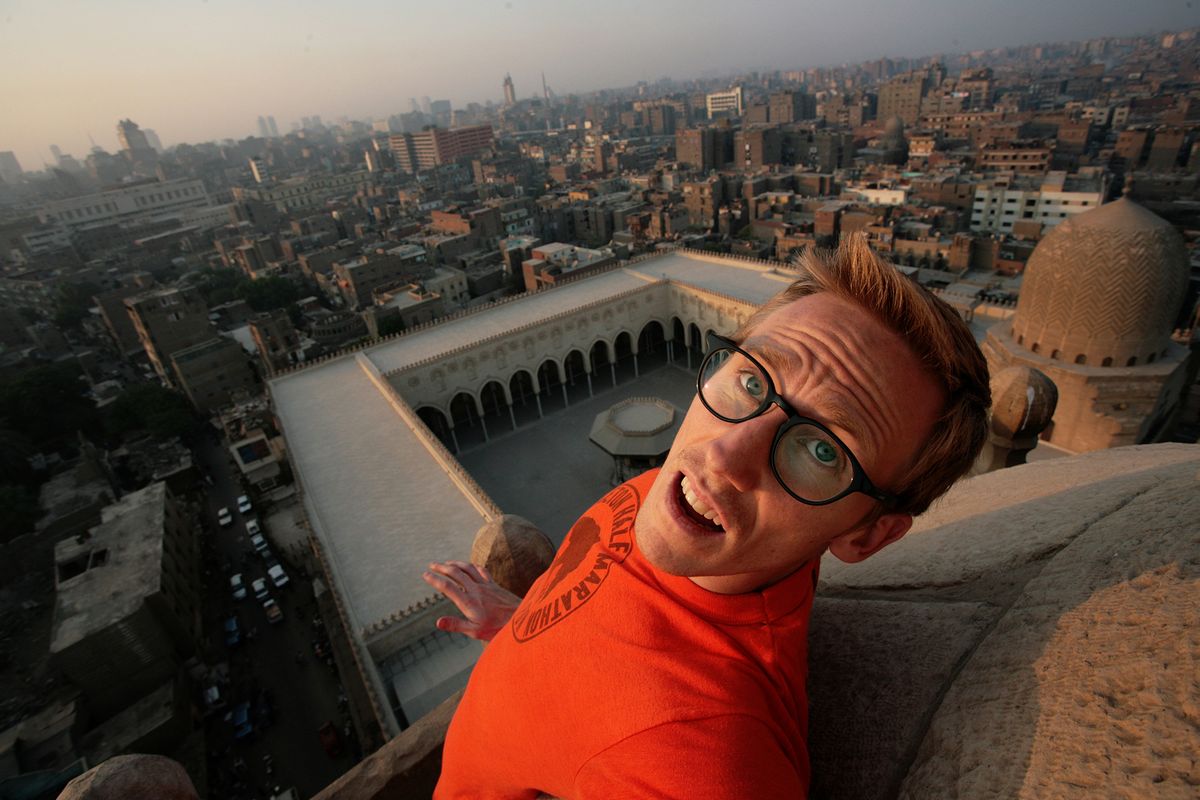Former Spokane residents witness unrest in Cairo

A former Spokesman-Review photojournalist now living in Cairo shot images of pro-Mubarak demonstrators on Wednesday moments before they burst through security forces keeping them from anti-government throngs occupying Tahrir Square.
“The army was keeping them at bay at the far end of the square,” said Holly Pickett, a freelance journalist who has covered conflicts throughout the Middle East.
“Then somebody started throwing rocks, and it got really violent,” she said. “A lot of people were injured.”
Realizing that the side streets leading into the square were being filled with pro-Mubarak crowds, potentially trapping her, Pickett and her colleagues got out.
Until Wednesday, the Rev. Ben Robinson, a former Spokane resident who now calls Cairo home, was impressed by the “peaceful and jovial, even festive” nature of the mass anti-government demonstration that’s now a week old.
Robinson, a Presbyterian minister and son of former Whitworth University president Bill Robinson, visited Tahrir on Wednesday and took photographs of the crowds. He and his wife, Emily, a nurse at the U.S. Embassy, remain in Cairo despite the evacuation of nonessential American diplomatic personnel and families.
The couple were told by a friend to leave downtown on Wednesday because of an imminent police action against the demonstrators.
“We were told that things were about to change, and we left,” Robinson said.
The pro-Mubarak demonstration is widely believed to have been initiated, if not carried out, by security forces loyal to the besieged Egyptian president.
But Pickett said the pro-Mubarak demonstrators were more diverse than just men in their 30s to 50s, as might be expected if they were mostly plain-clothed policemen.
Unlike in Tunisia, where she covered last month’s ouster of President Zine El Abidine Ben Ali, Egypt’s Mubarak still has some support, Pickett said.
“Some see him as stability for the country,” she said.
After covering conflicts in Afghanistan, Iraq, Yemen and Tunisia, Pickett did not expect to return to Egypt – the country she has called home for the past three years – and find another revolution.
Nor does she believe the anti-Mubarak movement is an attempt by religious fundamentalists to create an Islamic government in Egypt.
“The protests are wide-based,” she said. They now include young people using social networking to organize; an opposition group led by Mohamed ElBaradei, the former head of the International Atomic Energy Agency; other human rights groups; and the Muslim Brotherhood, a transnational Islamist movement that has opposed Western influence in Arab countries.
Robinson said he was surprised by the social diversity of the anti-Mubarak protesters.
“Egypt can be pretty segregated in terms of social class,” he said. “I was surprised to see upper-, middle- and lower classes all together protesting.”
Robinson said he met a 45-year-old mother risking jail to protest on her only day off from work.
Until Wednesday, he said, the only time he felt unsafe was Saturday when the police pulled out of his Maadi neighborhood, eight miles south of Tahrir.
“We were at home packing bags (in case of evacuation) and we heard there were looters coming,” Robinson said.
Then the mosques called out to the men to arm themselves and protect the community. Neighborhood men armed with pipes or small arms barricaded the streets, setting up checkpoints to stop cars and check identification papers.
“Basically, you had to justify why you were there in the neighborhood,” Robinson said.
In every street there were 10 or 15 men with white armbands – an elaborate neighborhood watch. His doorman, armed with a shotgun, told him, “Nobody is getting in this building.”
Throughout the night Robinson said he heard gunfire and expected his neighborhood to be trashed. But Sunday morning there was no sign of disturbance; the gunfire had come from the neighborhood watch, firing in the air to ward off potential hooligans.
Robinson said he has spent this week gleaning food from fleeing neighbors and distributing it to people in need. Today, he and Emily will bring food to Sudanese refugees. He will prepare for church service on Friday.
“Once we feel our personal safety is compromised, we will leave,” Robinson said. “In the meantime, we feel we are able to do a lot of good for the community.”